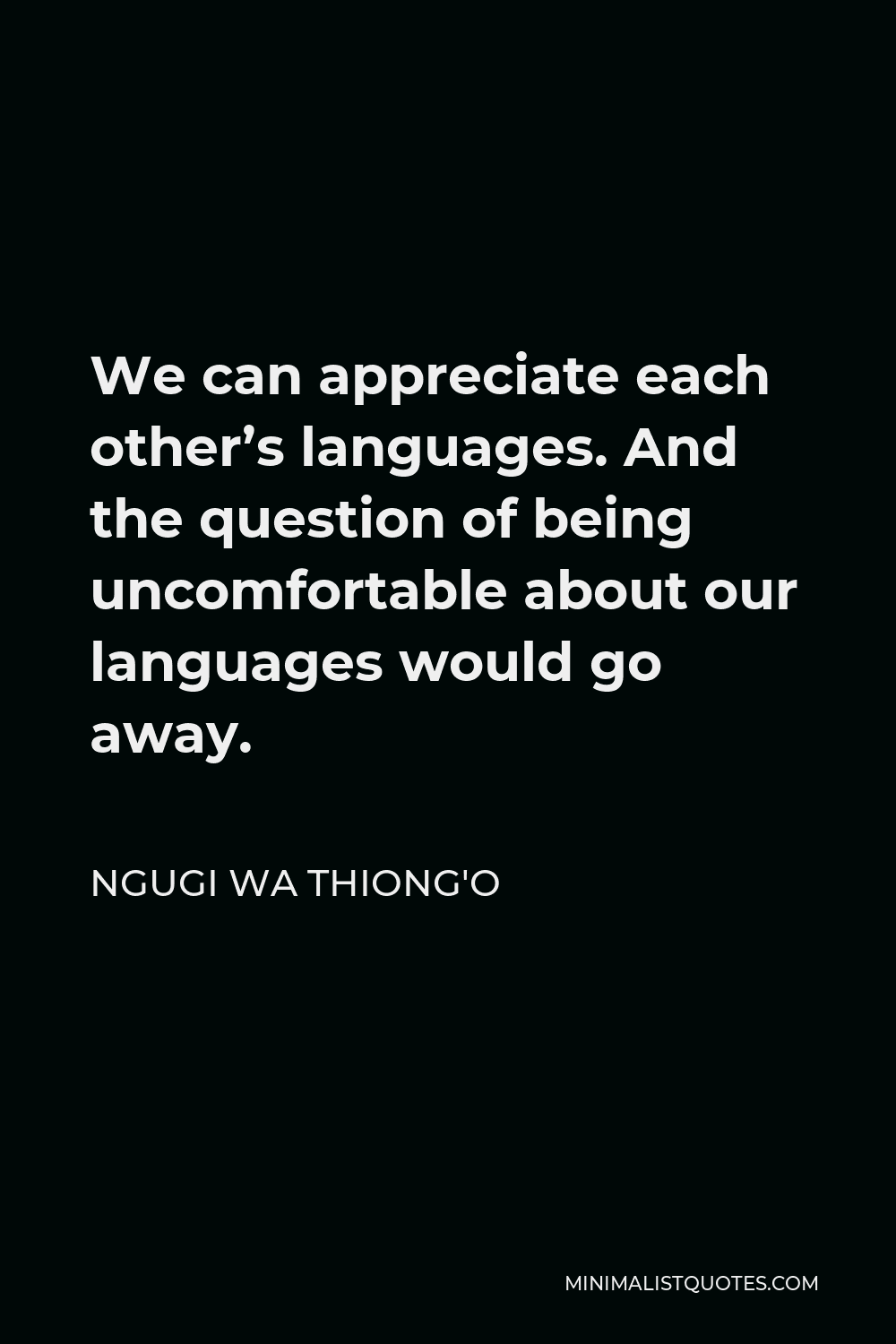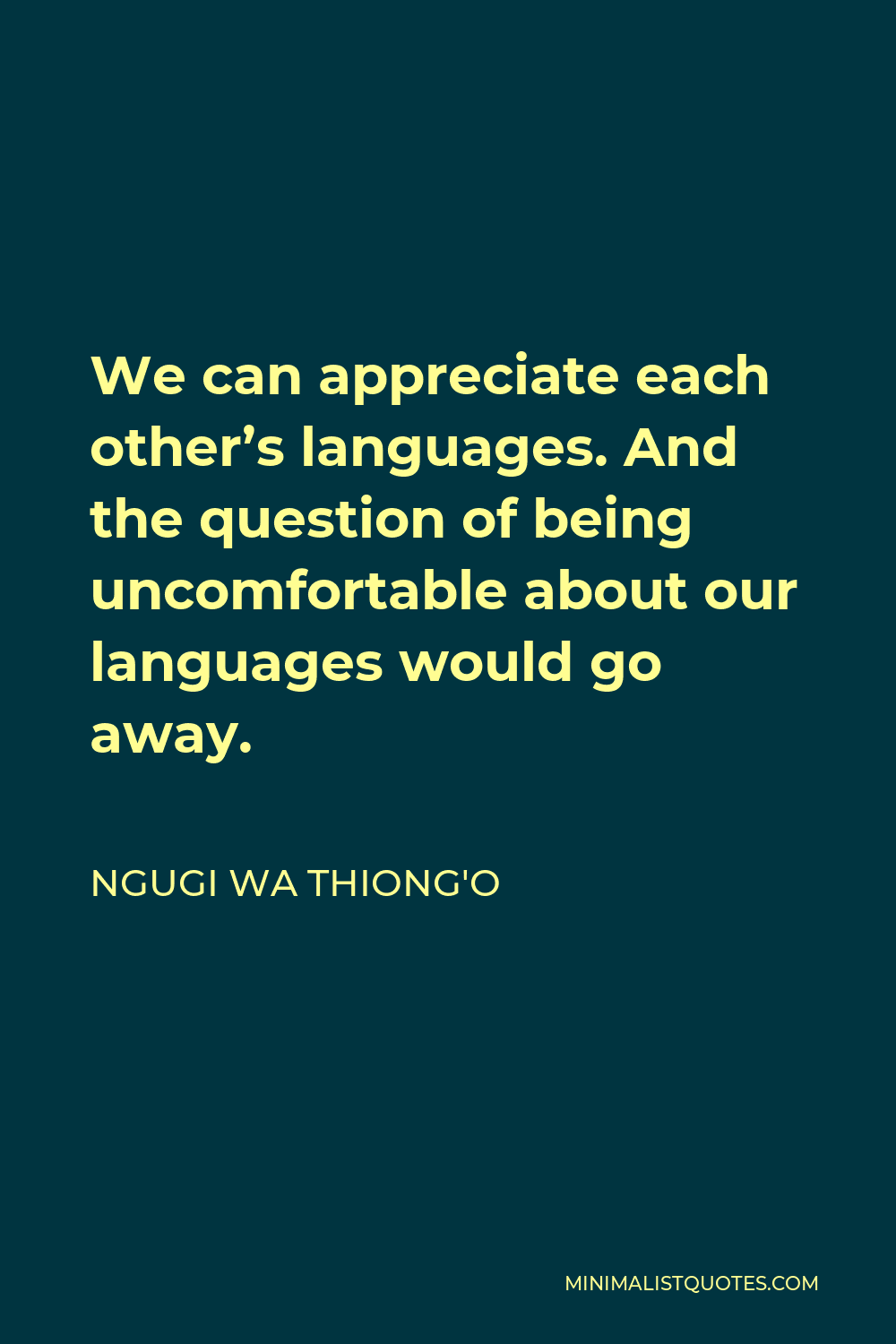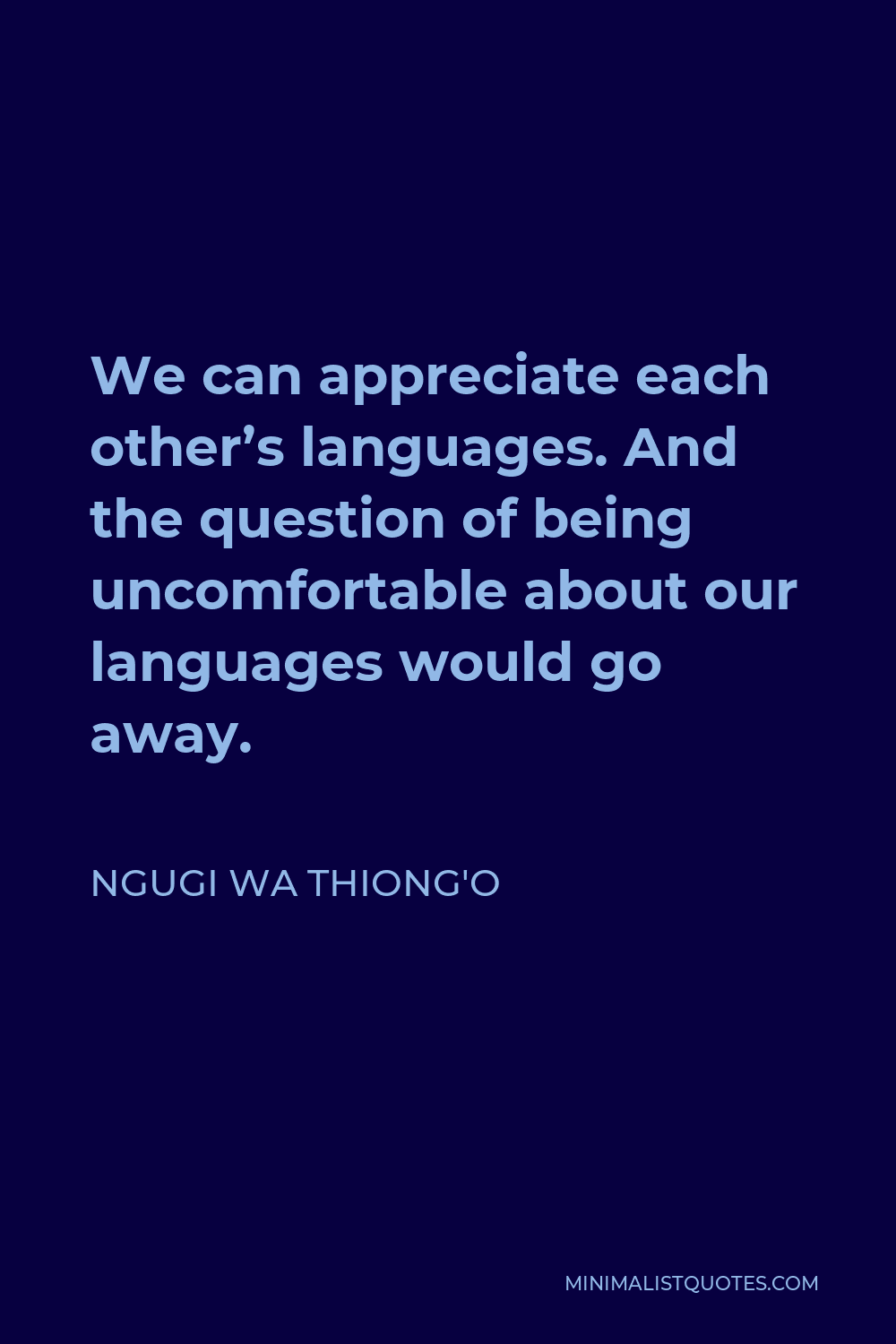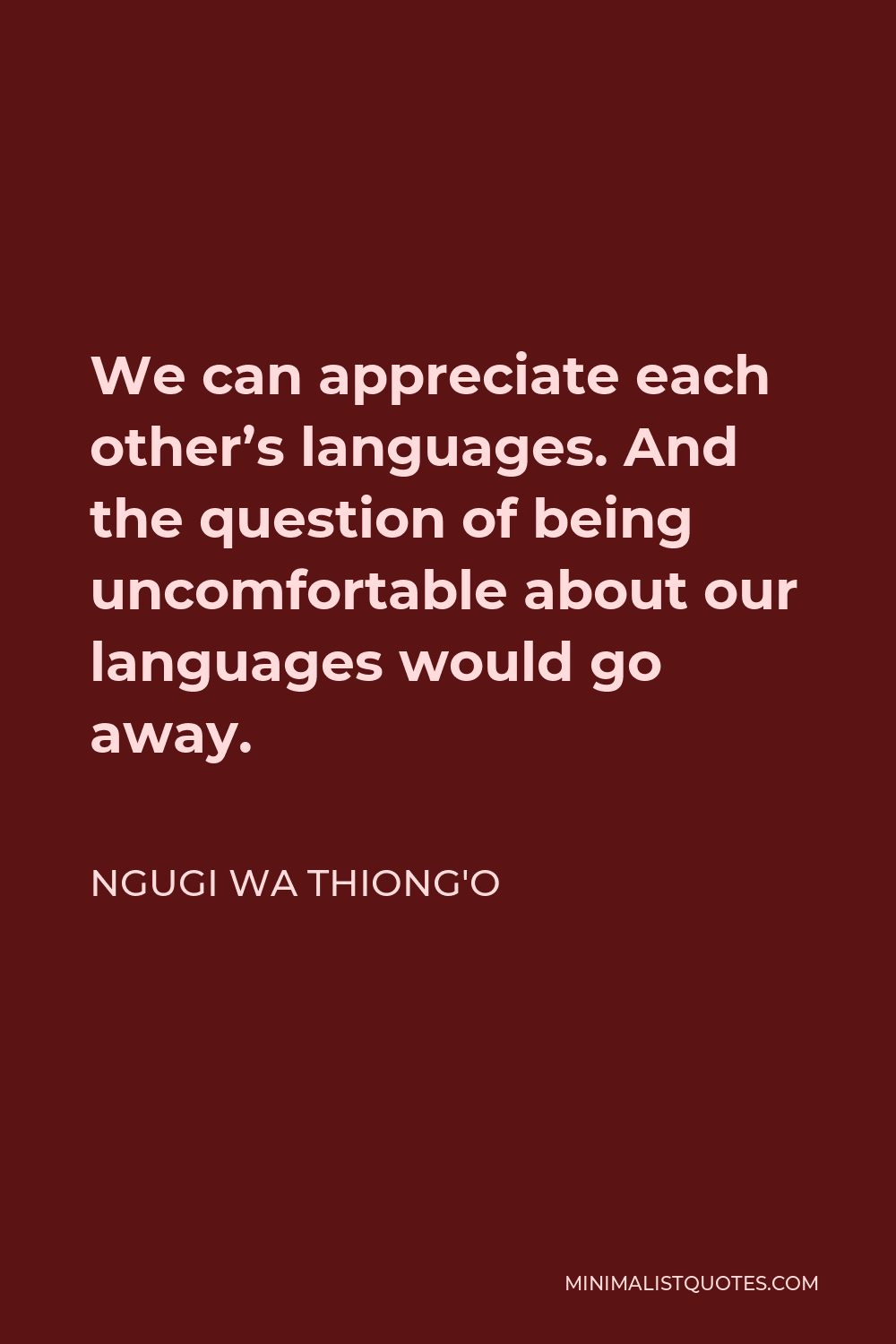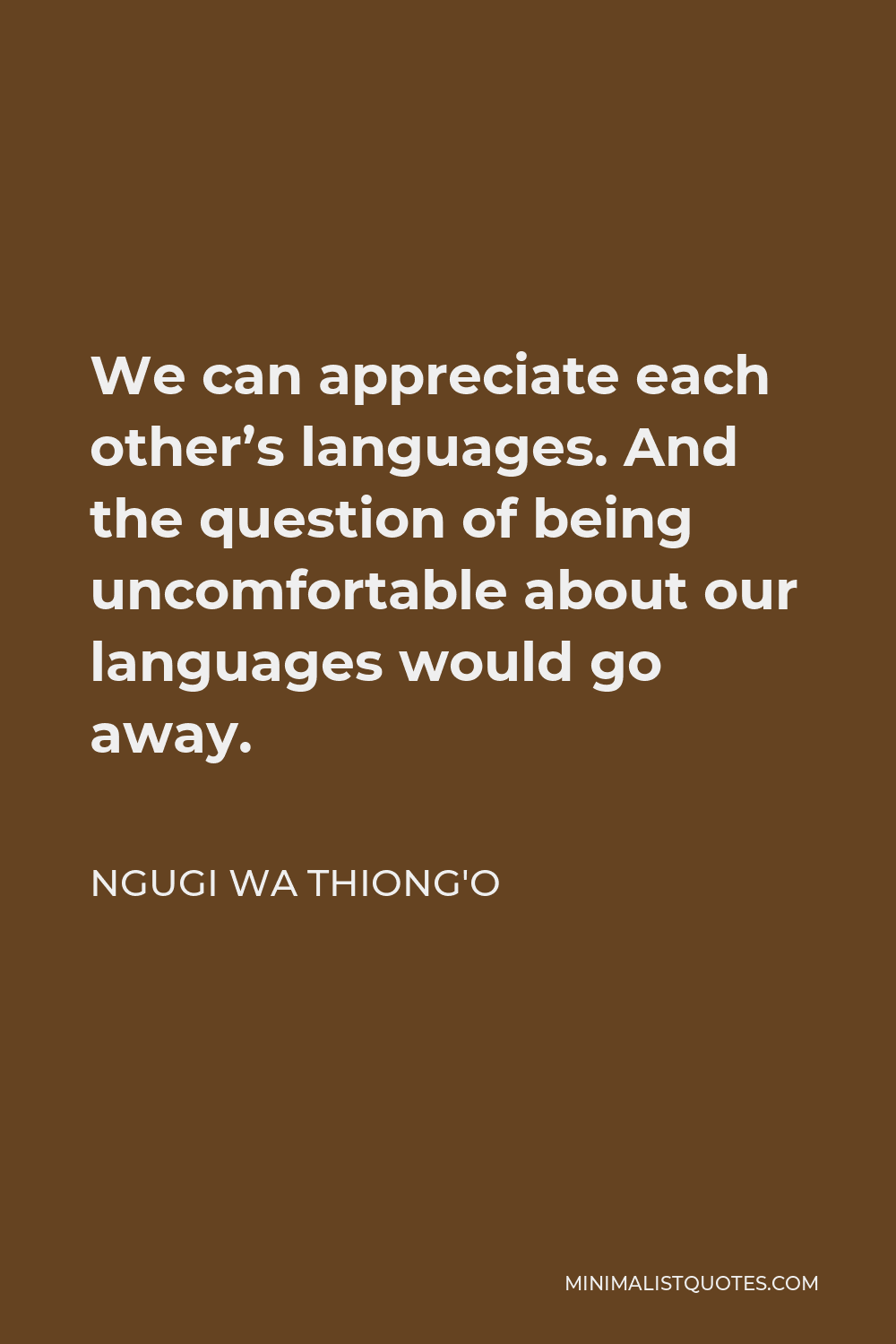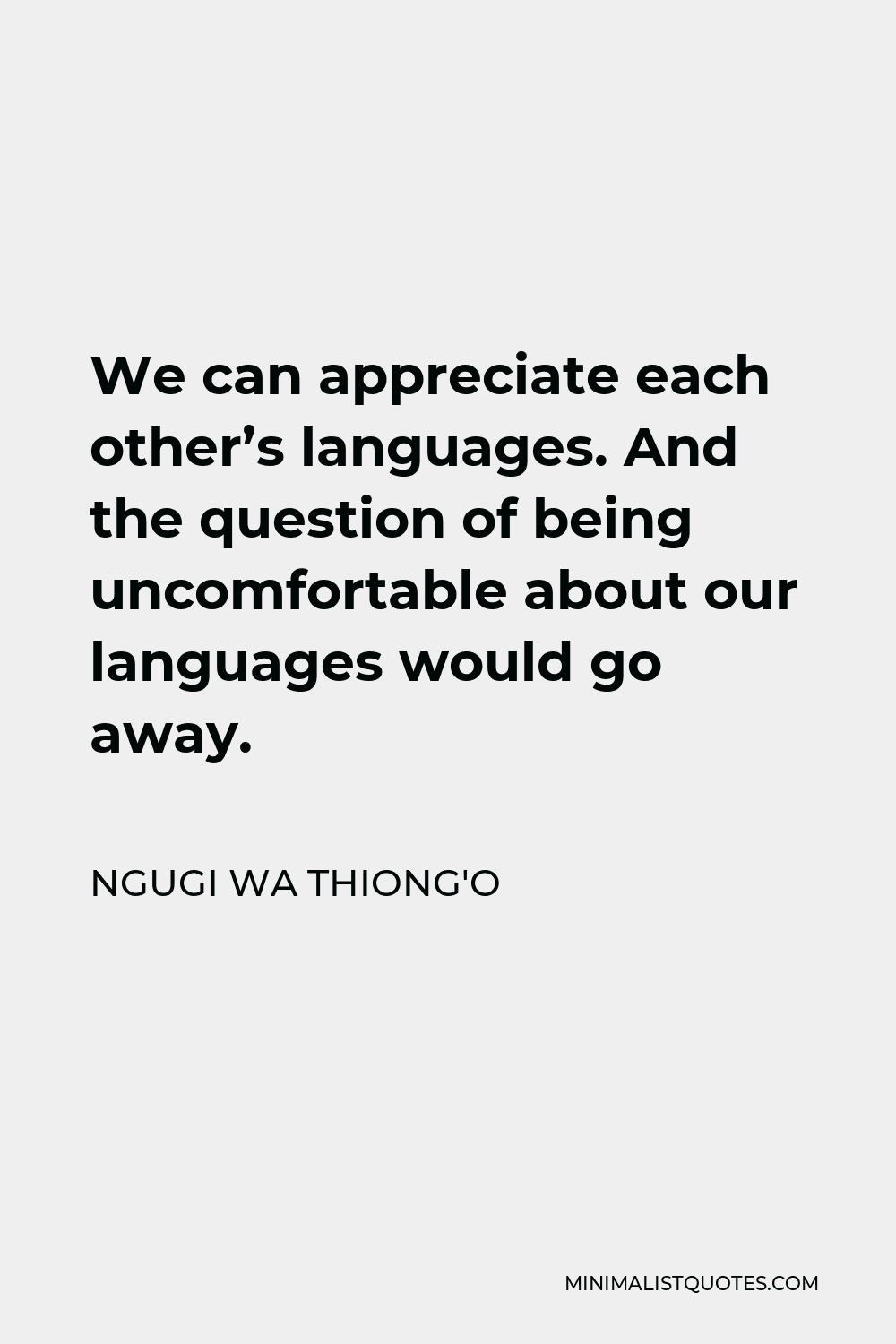The Bible affects everybody’s life who is a Christian, from the middle class in Europe to the peasant in Africa and Asia.
NGUGI WA THIONG'OWe can appreciate each other’s languages. And the question of being uncomfortable about our languages would go away.
More Ngugi wa Thiong'o Quotes
-





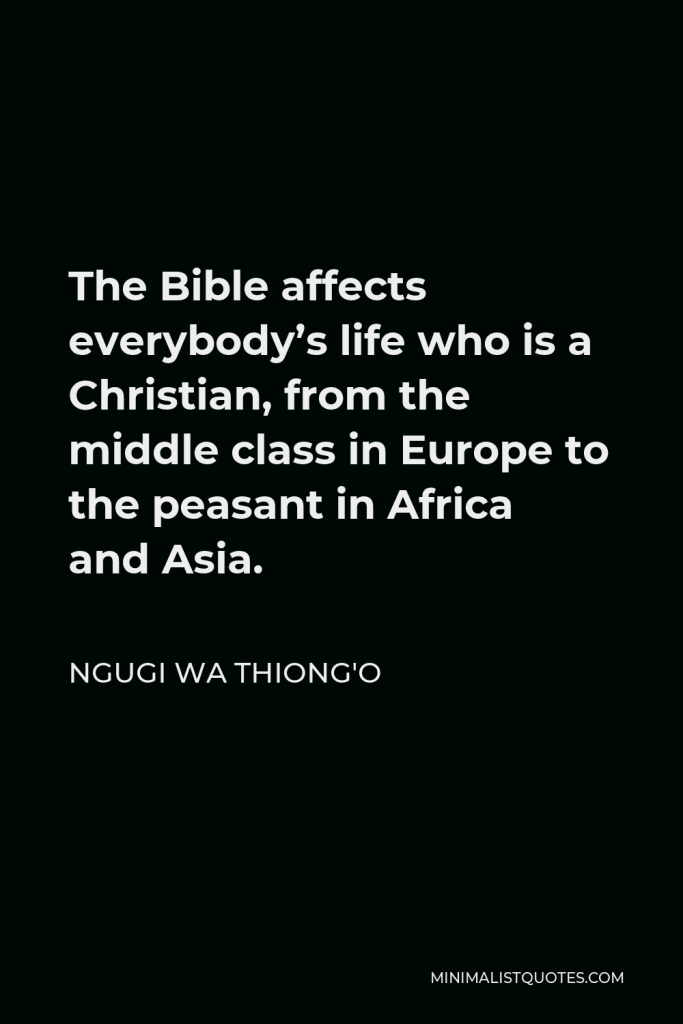

-





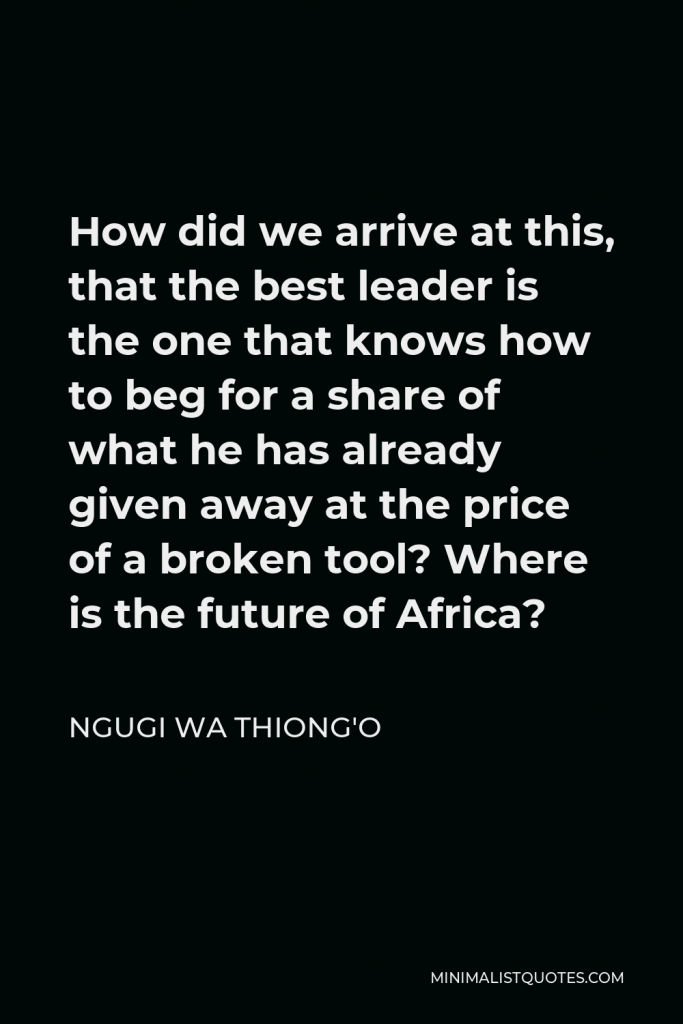

How did we arrive at this, that the best leader is the one that knows how to beg for a share of what he has already given away at the price of a broken tool? Where is the future of Africa?
NGUGI WA THIONG'O -





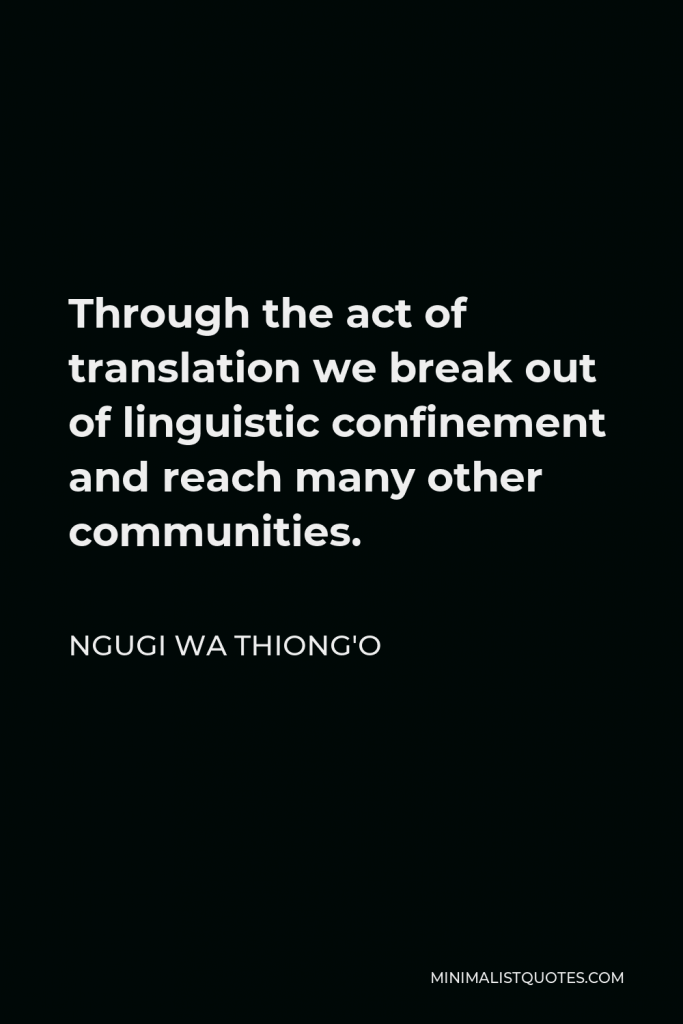

Through the act of translation we break out of linguistic confinement and reach many other communities.
NGUGI WA THIONG'O -





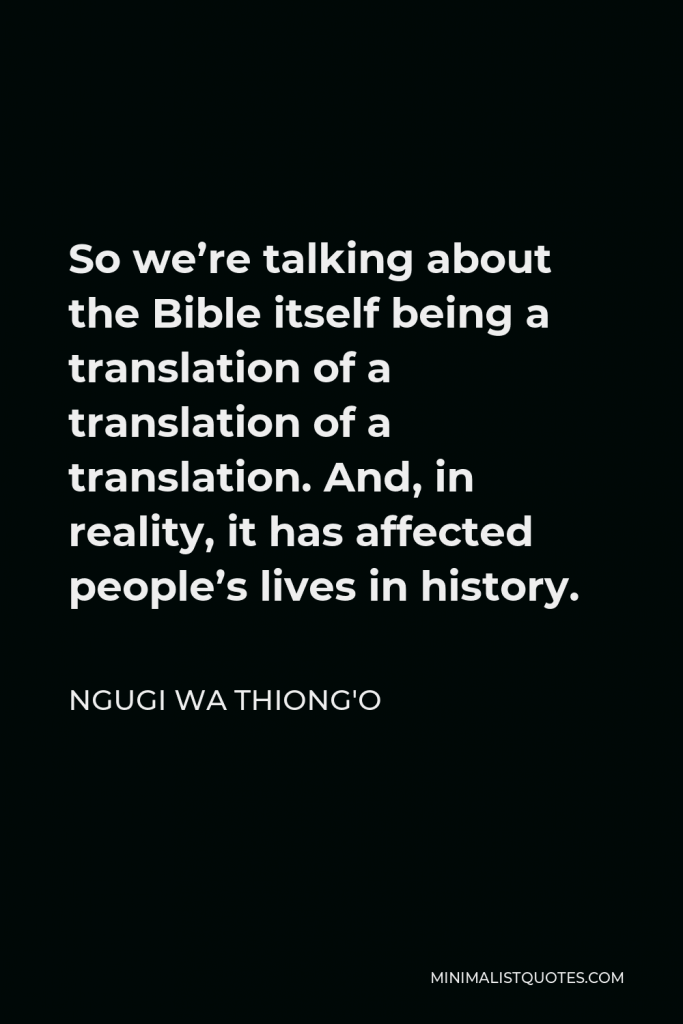

So we’re talking about the Bible itself being a translation of a translation of a translation. And, in reality, it has affected people’s lives in history.
NGUGI WA THIONG'O -





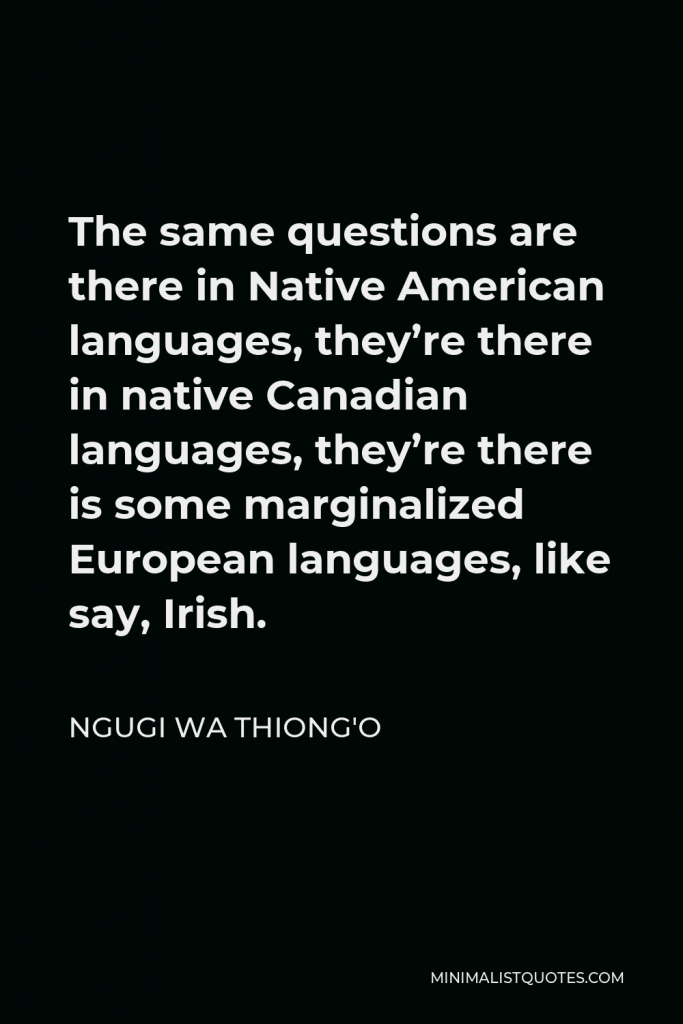

The same questions are there in Native American languages, they’re there in native Canadian languages, they’re there is some marginalized European languages, like say, Irish.
NGUGI WA THIONG'O -





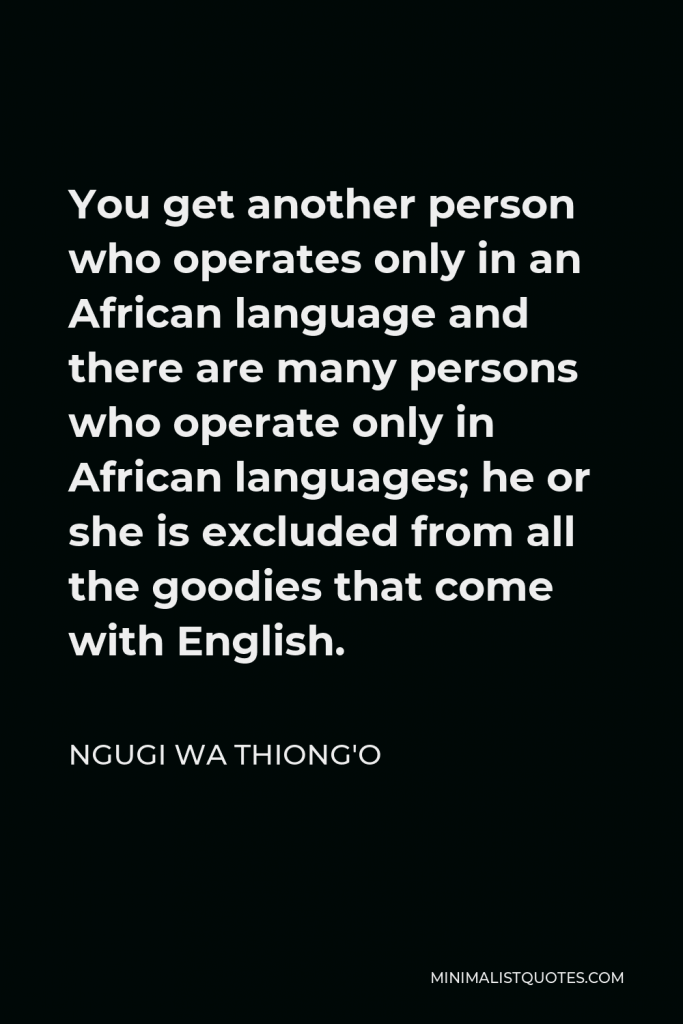

You get another person who operates only in an African language and there are many persons who operate only in African languages; he or she is excluded from all the goodies that come with English.
NGUGI WA THIONG'O -





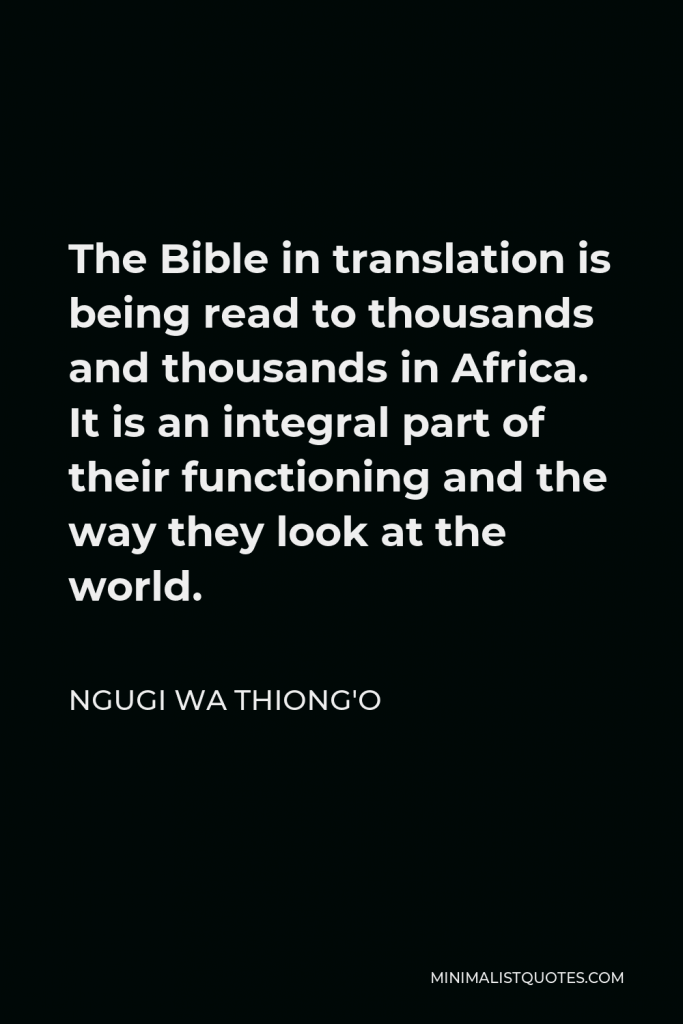

The Bible in translation is being read to thousands and thousands in Africa. It is an integral part of their functioning and the way they look at the world.
NGUGI WA THIONG'O -





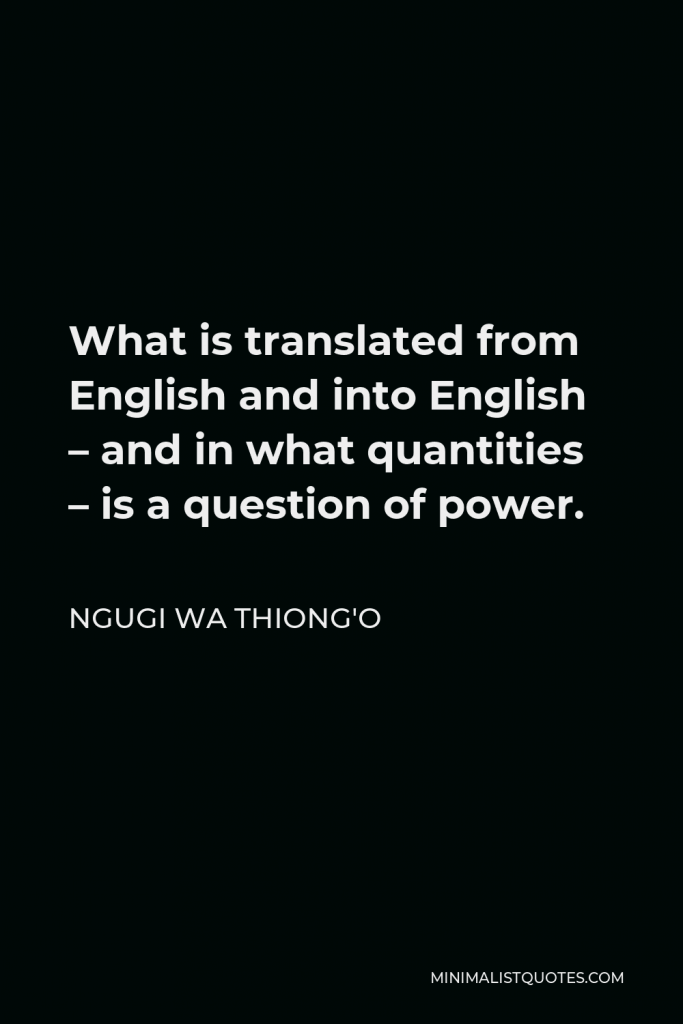

What is translated from English and into English – and in what quantities – is a question of power.
NGUGI WA THIONG'O -





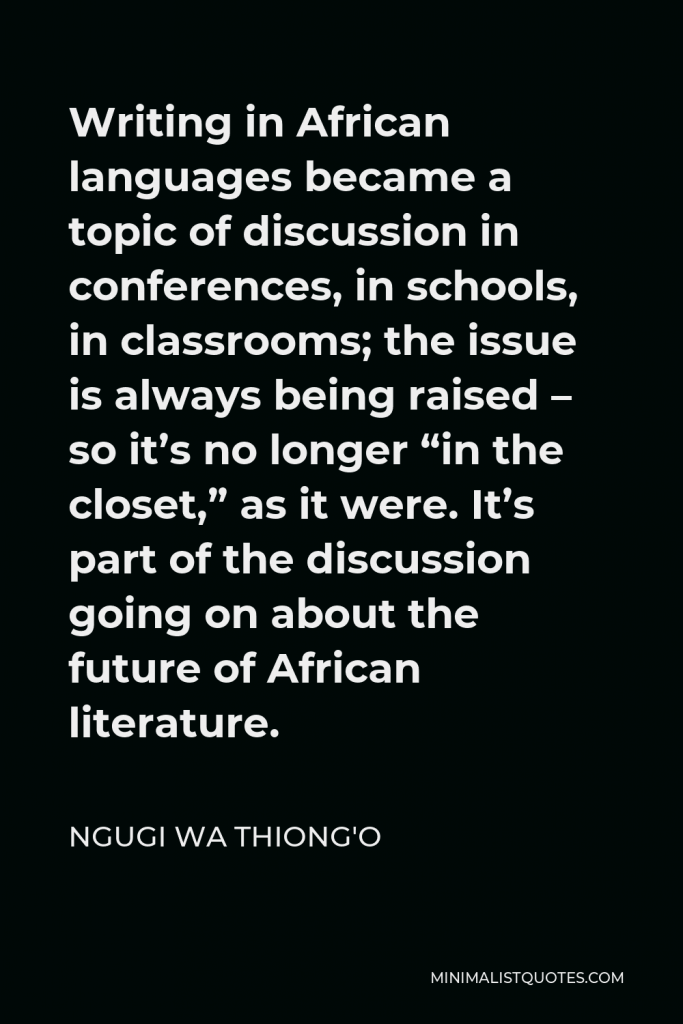

Writing in African languages became a topic of discussion in conferences, in schools, in classrooms; the issue is always being raised – so it’s no longer “in the closet,” as it were. It’s part of the discussion going on about the future of African literature.
NGUGI WA THIONG'O -





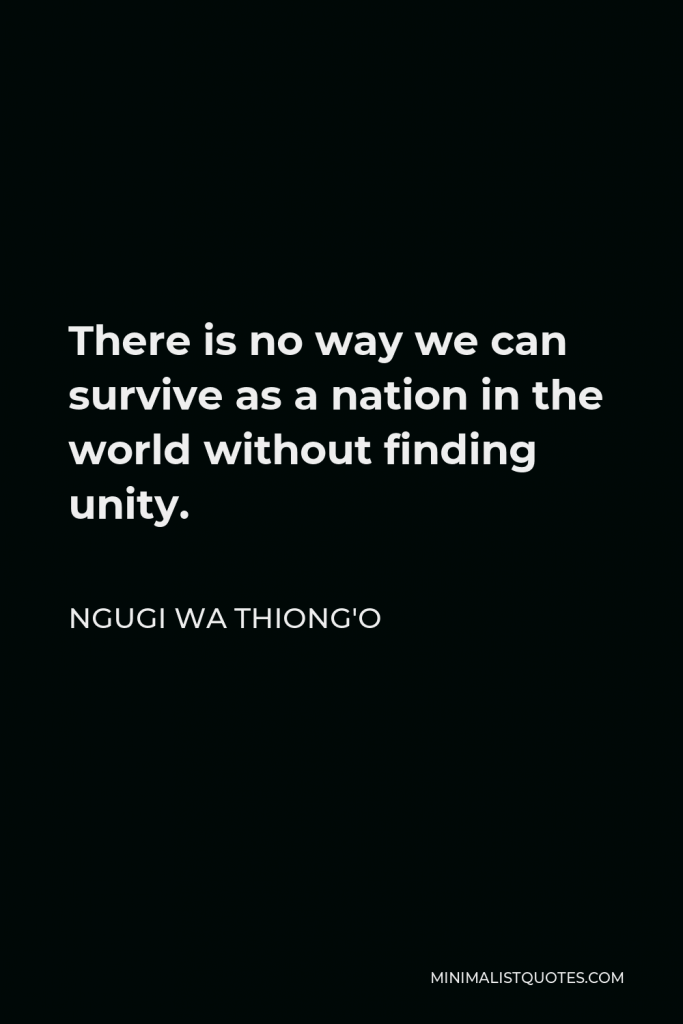

There is no way we can survive as a nation in the world without finding unity.
NGUGI WA THIONG'O -





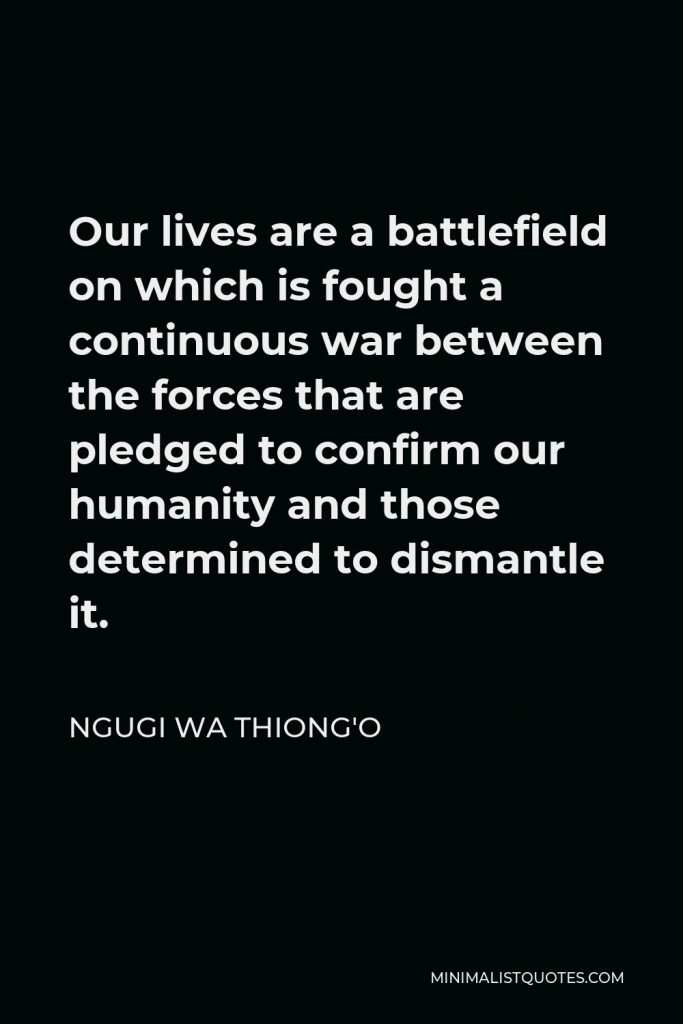

Our lives are a battlefield on which is fought a continuous war between the forces that are pledged to confirm our humanity and those determined to dismantle it.
NGUGI WA THIONG'O -





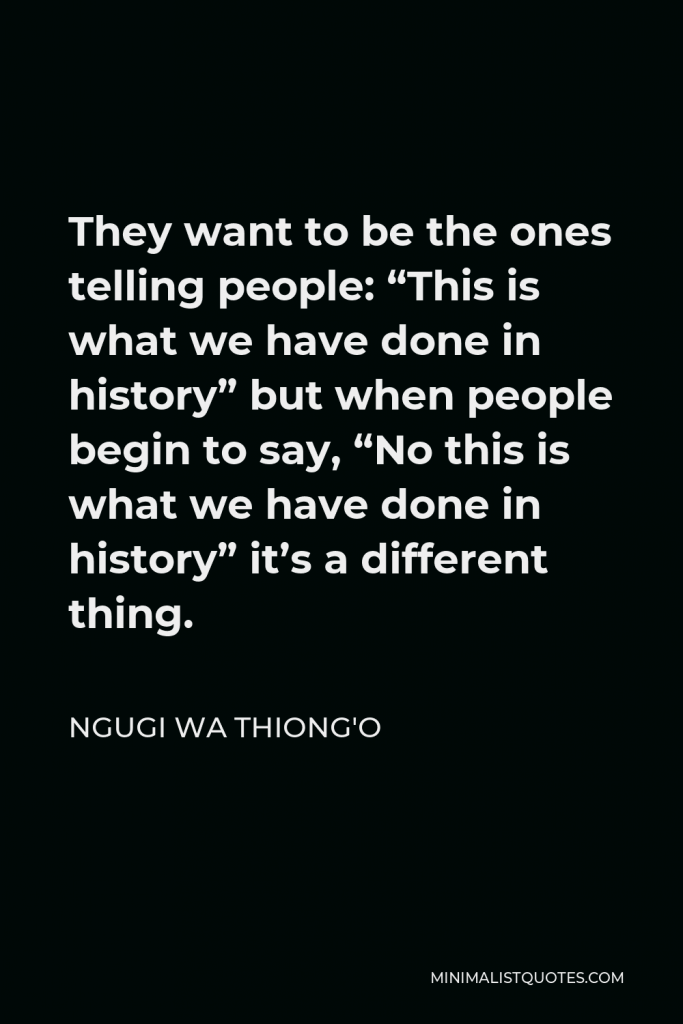

They want to be the ones telling people: “This is what we have done in history” but when people begin to say, “No this is what we have done in history” it’s a different thing.
NGUGI WA THIONG'O -





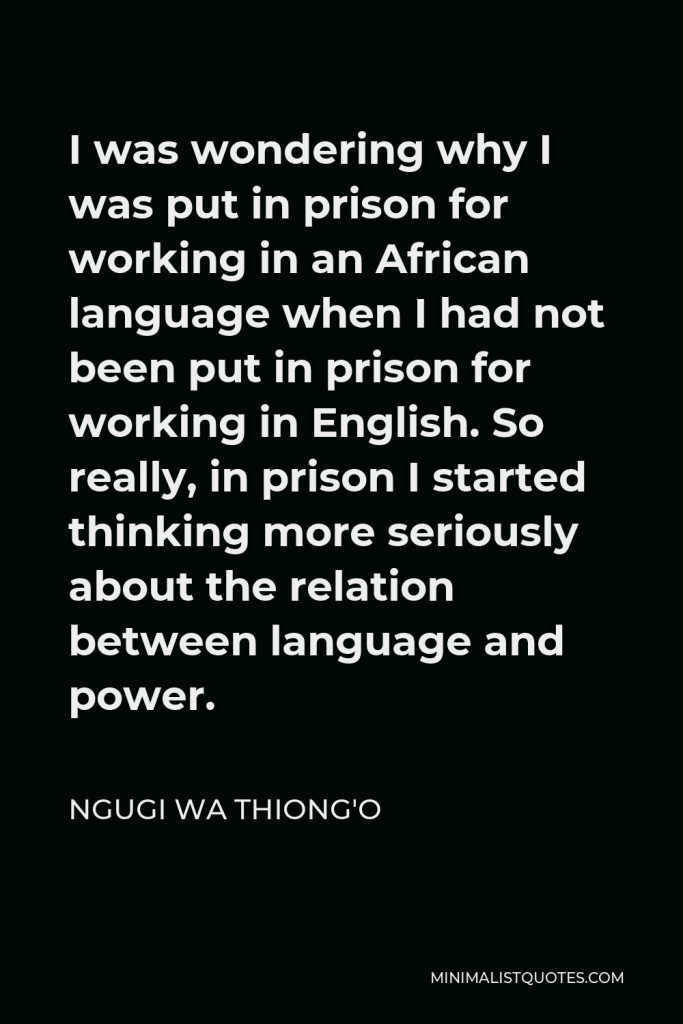

I was wondering why I was put in prison for working in an African language when I had not been put in prison for working in English. So really, in prison I started thinking more seriously about the relation between language and power.
NGUGI WA THIONG'O -





![Ngugi wa Thiong'o Quote - Those who strive to build a protective wall around it, and those who wish to pull it down; those who seek to mould it and those committed to breaking it up; those who aim to open our eyes, to make us see the light and look to tomorrow […] and those who wish to lull us into closing our eyes](https://minimalistquotes.com/wp-content/uploads/2022/09/those-who-strive-to-build-a-protective-wall-around-683x1024.jpg)

Those who strive to build a protective wall around it, and those who wish to pull it down; those who seek to mould it and those committed to breaking it up; those who aim to open our eyes, to make us see the light and look to tomorrow […] and those who wish to lull us into closing our eyes
NGUGI WA THIONG'O -





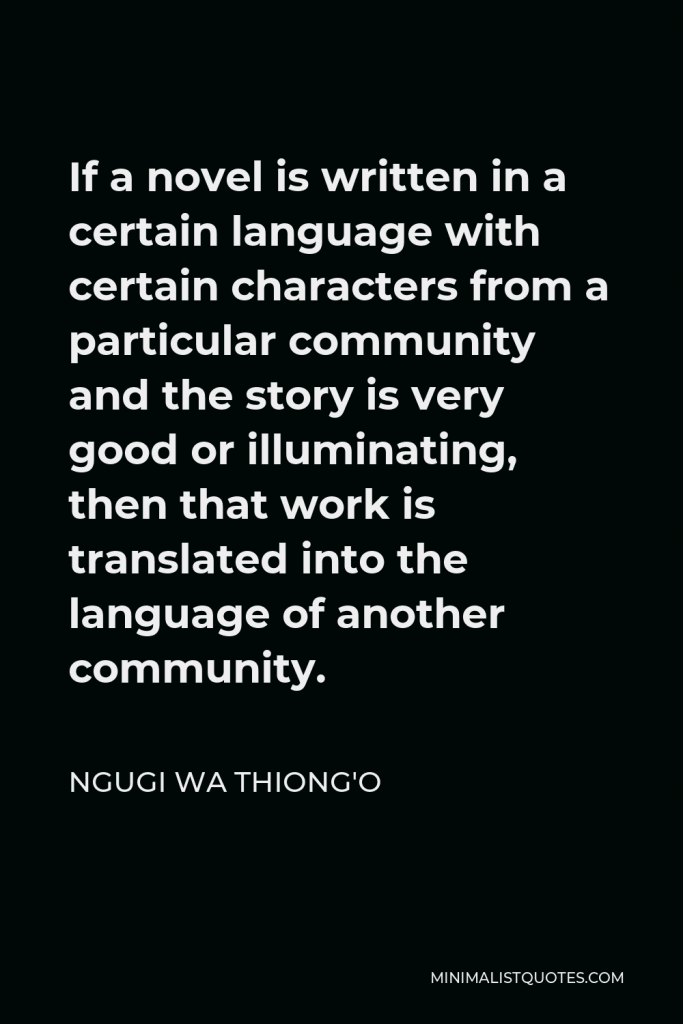

If a novel is written in a certain language with certain characters from a particular community and the story is very good or illuminating, then that work is translated into the language of another community.
NGUGI WA THIONG'O -





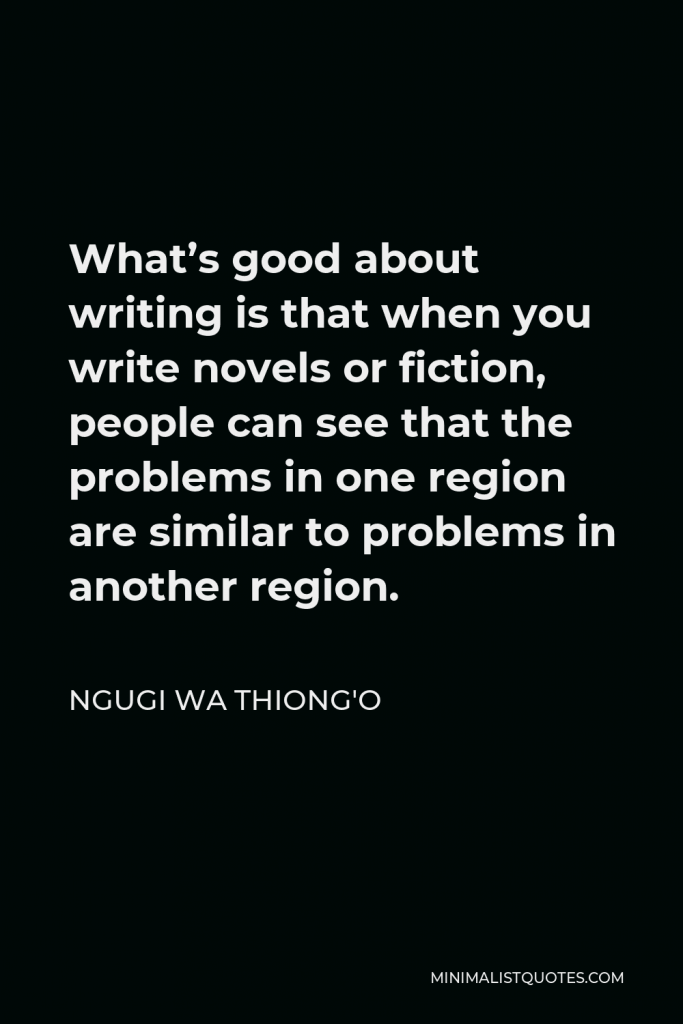

What’s good about writing is that when you write novels or fiction, people can see that the problems in one region are similar to problems in another region.
NGUGI WA THIONG'O
